Micron M600 128GB SSD review
6. Benchmarks - AS SSD benchmark
We move on with the AS SSD benchmark, which contains five synthetic as well as three practical tests. The synthetic tests determine the sequential and the random read / write performance of an SSD. These tests are carried out without using the operating system's cache. The Seq-test measures how long it takes to read and write an 1GB file. Most importantly, this sequential benchmark uses incompressible data for all of its transfers.
The 4K benchmark tests the read and write performance for random 4K blocks. The 4K-64-THRD-test corresponds to the 4K procedure except that here the read and write operations are distributed on 64 threads:
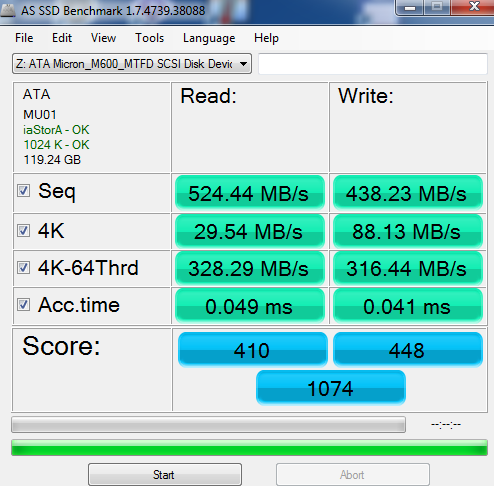

The M600's performance in sequential reading with incompressible test was very high at 524.4 MB/s - a bit faster than the larger in size MX100 and the M550 in the chart below- mainly due to the contribution of the Dynamic Write Acceleration.
Sequential writing was slower at 438.23 MB/s (average).
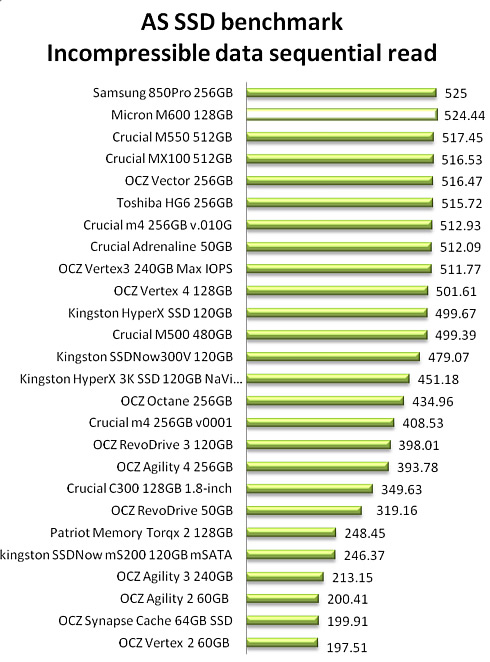
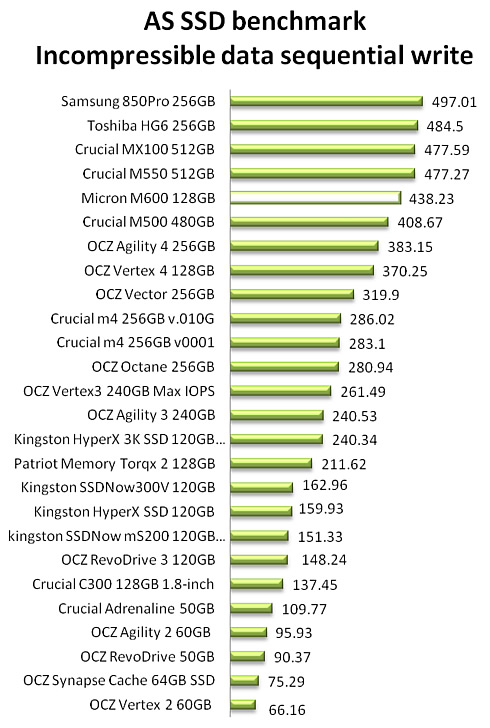
At the 4K random reading tests, the M600 SSD ranked 2nd at the chart below, with an average reading speed of 29.54 MB/s.

The drive remained very fast at the 4K random writing tests, giving 88.13B/s:
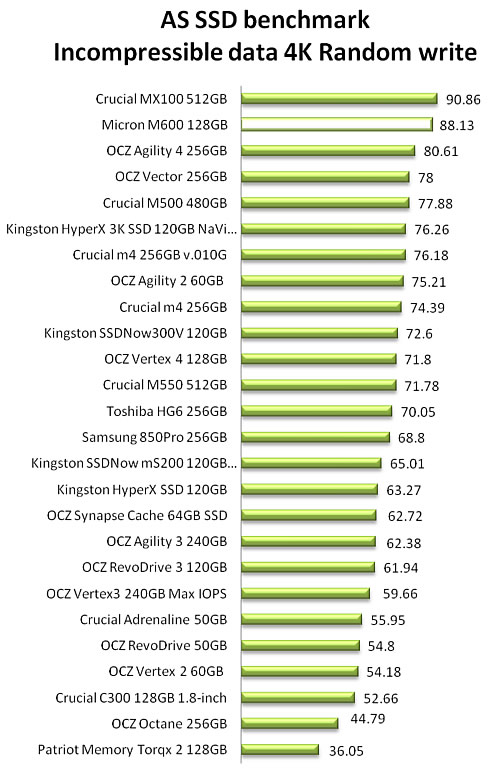
The m600 kept giving an adequate performance with multi-threaded requests for random reading of 4K incompressible files. The figures we got are close to the MX100's:
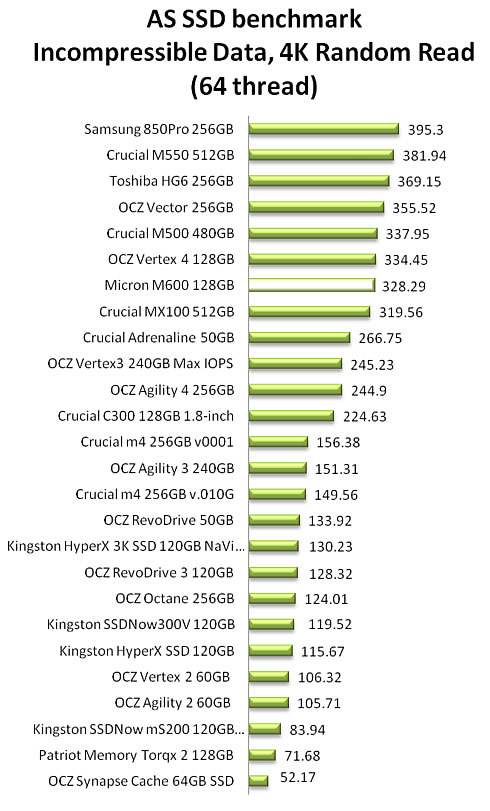
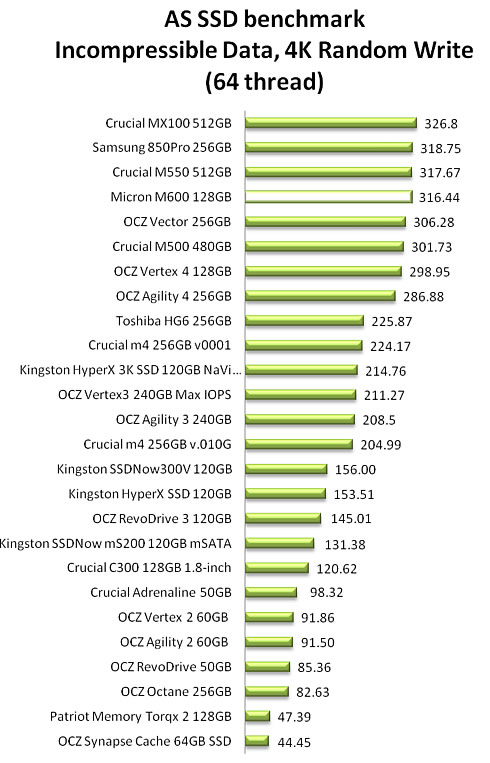
In the following graph you see how the Samsung SSD drive reads and writes files, which have been partially of fully compressed. It is obvious that the both reading and writing speeds are pretty stable and do not depend on level of file compression:






















